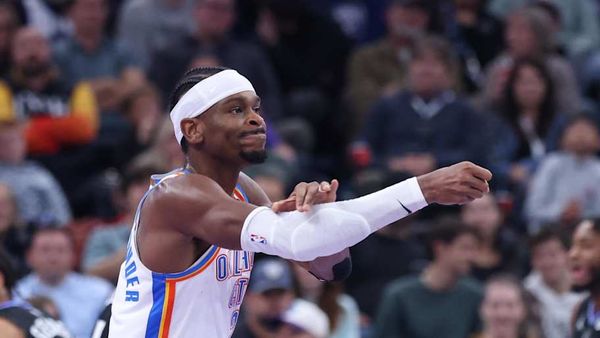
Long before billionaire Mark Cuban bought the Dallas Mavericks or sat in the "Shark Tank" investor chair, he was just a college kid trying to hustle his way through Indiana University—and according to him, he did it with a grin, a grind, and yes, a chain letter that probably violated a few laws.
In a 2019 episode of GQ's "Actually Me" series, Cuban went online to correct, confirm, and occasionally laugh at facts about himself pulled from Wikipedia, Twitter, Instagram, Quora, and more.
Don't Miss:
- The ‘ChatGPT of Marketing' Just Opened a $0.81/Share Round — 10,000+ Investors Are Already In
- Accredited Investors Can Now Tap Into the $36 Trillion Home Equity Market — Without Buying a Single Property
One entry claimed he ran a bar, taught disco lessons, and sold chain letters in college. Cuban's reaction:
"Yes I did!" Cuban said. "I went to Indiana University and I had to pay for my own school. I had to figure out every which way in order to do it."
Enter the chain letter: a pyramid-style scheme that involved mailing cash to names on a list, crossing one off, and adding your own name to the bottom—then recruiting 10 more people to do the same. He was a junior at the time, and while most students were worrying about finals, Cuban was orchestrating a cash flow.
"You buy the chain letter from somebody and in the letter is a list of 10 names. You give $50 to the person you bought the letter from, and you send $50 to the person at the top of the list. Scratch their name off, put your name at the bottom, and then find at least 10 people to sell it to," he explained. "One by one, your name works its way to the top."
Trending: Wall Street's $12B Real Estate Manager Is Opening Its Doors to Individual Investors — Without the Crowdfunding Middlemen
That's exactly what he did. Cuban says he was so committed to the system that he made sure the people he sold to didn't lose money either.
"I also sold it so that none of the people I sold it to lost any money, because I would've felt horrible," he said. "I remember getting up every morning so excited, because there'd be like envelopes with $50 here, $50 there. It was amazing. It was great. It was illegal."
It's peak Cuban: wildly enthusiastic, slightly reckless, and profit-driven—if not exactly law-abiding.
But chain letters weren't his only side hustle. In the same breath, Cuban described how his dance moves landed him a job giving disco lessons to sororities.
"I needed a job. I like to dance. I always liked to dance and I was okay at it," he said. "Somebody saw me and they're like, ‘We need you to give disco lessons at our sorority house.' Cool, how much you gonna pay me? They're like, ‘$25 an hour.' I'm like, ‘Yes!'"
See Also: 7 Million Gamers Already Trust Gameflip With Their Digital Assets — Now You Can Own a Stake in the Platform
From there, word-of-mouth turned him into the campus dance guy, bouncing from one sorority house to the next, earning real cash for moves and music. Eventually, he took out a student loan to co-run a bar—still under 21 at the time. He even admitted he didn't use a lawyer to close the deal.
"We wrote up a little contract, and I was so stupid, I didn't even use a lawyer," he said. "We took all the disco stuff out, put in the best sound system we could find… we opened up, and there were lines to get in."
Whether it was pirated chain letters or party promoting, Cuban made it clear: financial survival in college wasn't about playing it safe—it was about creating opportunity wherever it could be wrangled.
Sure, today he's worth billions. But as a junior at Indiana, he was just a broke kid with a chain letter, a disco beat, and zero interest in waiting tables. And apparently, that hustle paid off—one illegal envelope at a time.
Read Next: If there was a new fund backed by Jeff Bezos offering a 7-9% target yield with monthly dividends would you invest in it?
Image: Imagn Images







